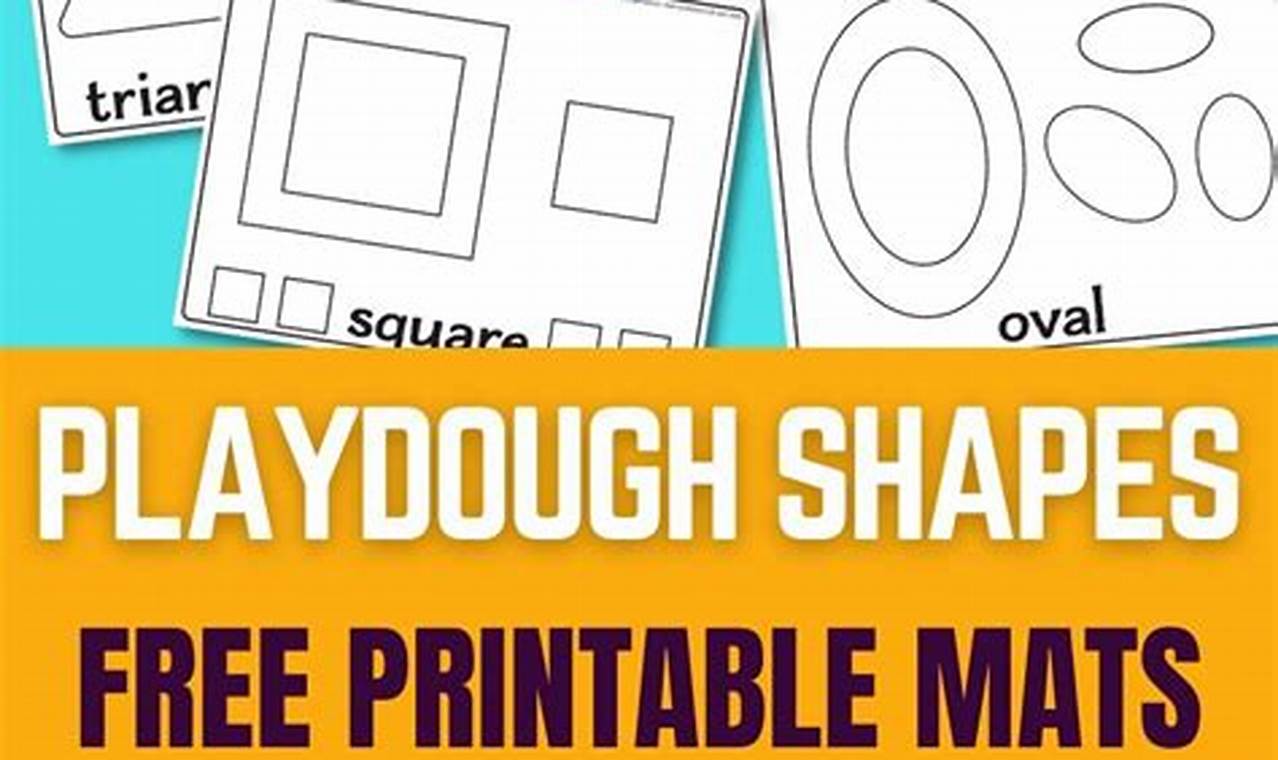Introducing children to shapes early on is fundamental for their cognitive development. Recognizing and understanding shapes helps build a foundation for geometry, spatial reasoning, and even reading. Employing hands-on activities, such as using playdough to trace shapes, makes learning interactive and enjoyable, promoting better retention and comprehension of basic geometric concepts.
The “shape tracing activities with playdough” worksheet offers multiple learning benefits. It significantly enhances fine motor skills as children manipulate playdough to follow the shape outlines. This activity also reinforces shape recognition, improves hand-eye coordination, and encourages creativity. The tactile experience of molding playdough provides a multi-sensory learning approach, making it particularly effective for kinesthetic learners.
This engaging worksheet features a variety of common shapes presented in a clear and accessible format. Each shape is outlined with a dotted line, serving as a guide for children to follow with their playdough. Shapes include circles, squares, triangles, rectangles, and stars, among others. The worksheet design is simple and uncluttered, minimizing distractions and keeping the focus on the shapes. Ample space is provided around each shape, allowing for easy manipulation of the playdough.
To use the “shape tracing activities with playdough” worksheet effectively, first, provide the child with a ball of playdough. Guide the child to roll the playdough into thin “snakes.” Next, instruct the child to carefully place the playdough along the dotted lines of each shape, pressing gently to secure it. Encourage the child to follow the entire outline of the shape. Adults can assist by providing verbal guidance and demonstrating the process. Breaking the task into smaller steps, such as completing one shape at a time, can help maintain the childs focus and prevent frustration.
To further enhance learning, consider complementing the worksheet with other resources. Kidtraces.com offers a range of related shape recognition worksheets and coloring pages. Interactive online games that feature shape matching and sorting can also be beneficial. Incorporating shapes into daily activities, such as identifying shapes in household objects or creating shape-based art projects, reinforces learning in a fun and practical way.
The “shape tracing activities with playdough” worksheet is a valuable tool for early childhood education. It provides a fun and effective way to develop essential skills while reinforcing shape recognition. Readers are encouraged to download the worksheet and try it with their children. Explore more free worksheets on Kidtraces.com to support continuous learning and skill development in various areas.
